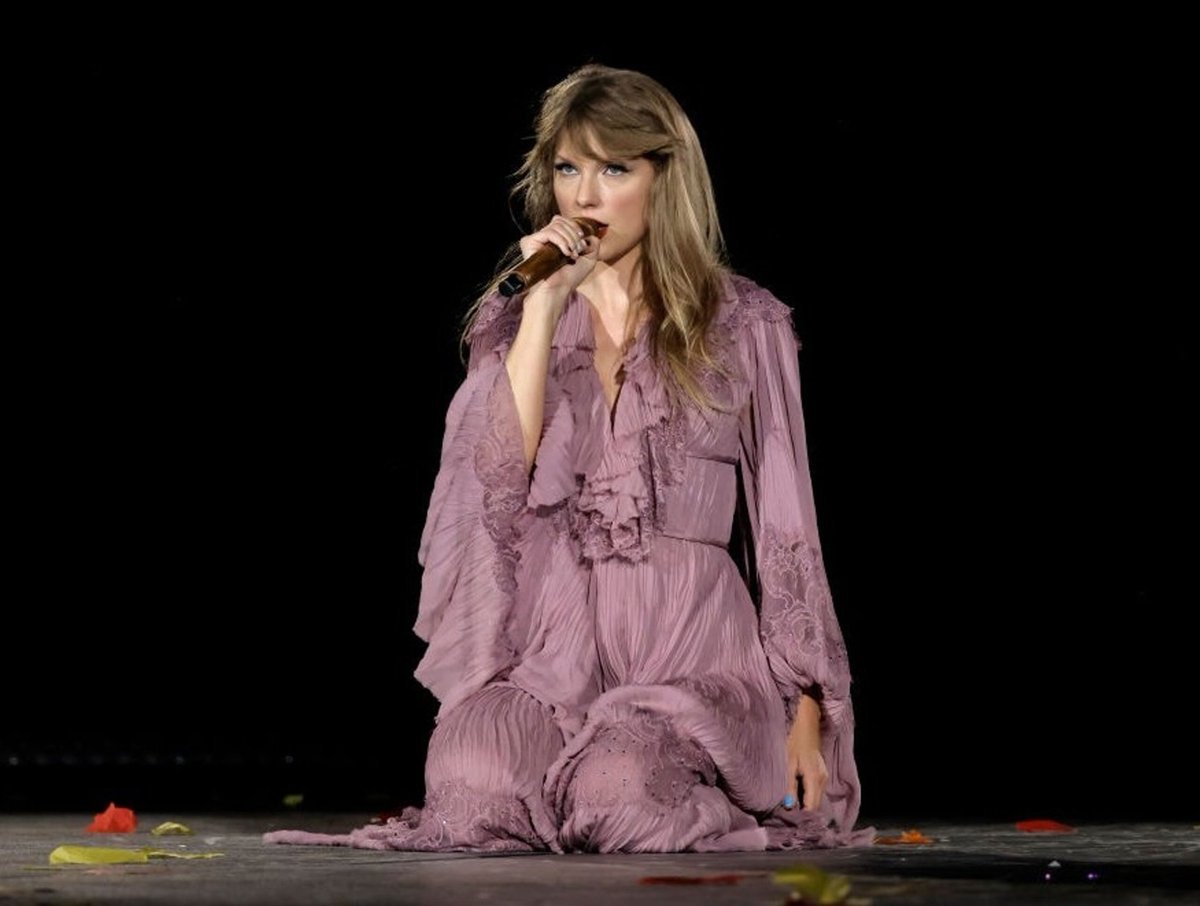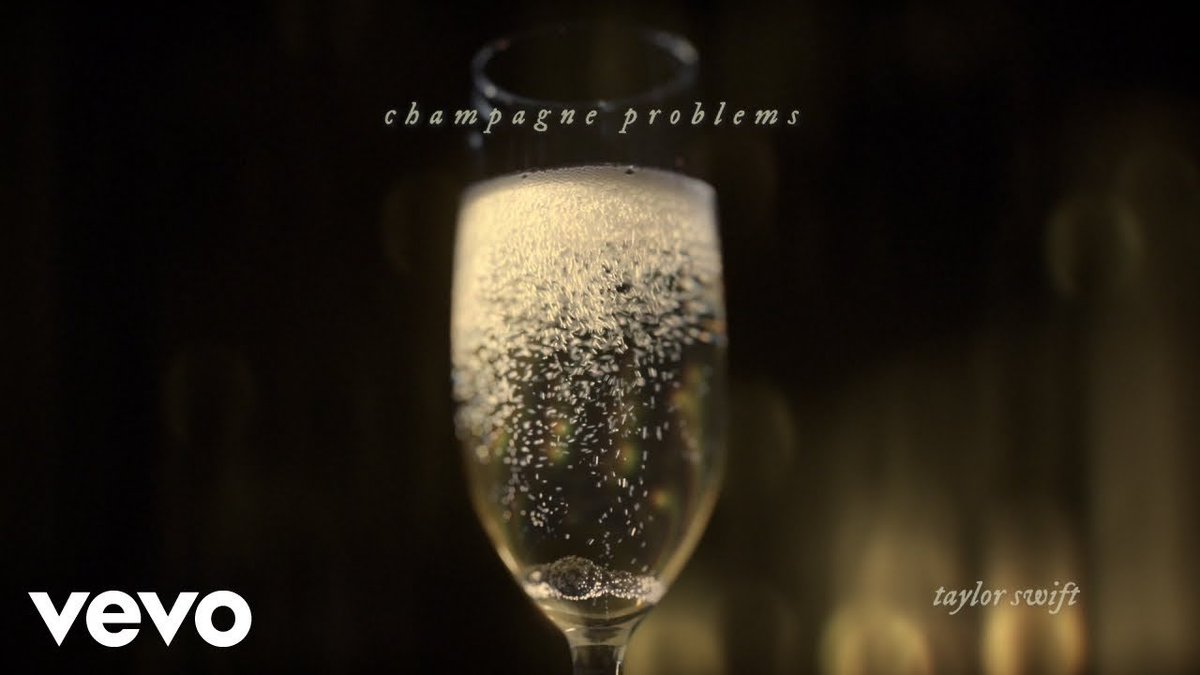The drought was the very worst--but the flowers that we grew together have now brought us 1989 TV. And to celebrate, I bring you an analysis of the emotional masterpiece of the album: Clean.
Get out your tissues, let's dive in. A 🧵:
Get out your tissues, let's dive in. A 🧵:

1) Let's start with the title. Of course physically, to be clean is to be pure--to be free from marks or stains, to be made new again. But what does it mean to be clean on an emotional level? There are several intersecting definitions, all of which shape the meaning of the song.
2) The same way you can clean a countertop of dirt, you can also clean your mind of a stain. This could mean moving on from a painful stain on your memory, or removing yourself from a person or situation that stained your sense of self, self-worth, or perception of the world.
3) To feel "clean" from these situations is to feel "made new" again--to feel like you have regained some part of the pure version of who you were before the experience that stained you. You may not be exactly the same as you were before, but you are purely, cleanly, YOU again.
4) In other words: "I'd like to be my old self again, but I'm still trying to find it." She longed for the old, "clean" version of herself, unstained from the memories of the painful relationship. She wanted to escape the "stained glass windows in her mind" and see clearly again.
5) To be "clean" is also a phrase used to describe abstinence, most commonly in the context of overcoming addictions. And the same way that you can overcome your dependence on a substance, you can also overcome your dependence on a person or circumstance that was harmful to you.
6) The word "clean" also carries moral connotations, similar to the word "pure." An experience that brings you guilt or shame can also make you feel "unclean," and finally being able to remove yourself from the source of shame and pain can restore your own sense of integrity.
7) Lastly, "clean" is also a synonym for "complete." To make a "clean break" is to end something with finality. To be "finally clean" can mean finally achieving definitive closure, finally ending a relationship or making a firm decision once and for all, without looking back.
8) Every single one of these meanings is valid, and every single one applies--which is part of the song's enduring, poignant appeal. Clean can apply to the end of a relationship (romantic or otherwise), a toxic situation, or a battle against an addiction, physical or mental.
9) One of the most beautiful aspects of humanity is that there are some things we all share, no matter who we are or what our life circumstances are. All of us feel pain, and therefore, all of us can feel clean. So with all of these meanings in mine, let us begin our analysis.
10) "The drought was the very worst, when the flowers that we'd grown together died of thirst." Taylor refers to the slow, painful end of something beautiful, where months or years of caring, thoughtful effort ("flowers") begin to suffer under a "drought" (an absence of love).
11) What used to be a wonderful, collaborative effort to create something meaningful together has become lifeless. In a relationship setting, perhaps one person stopped putting in effort, leaving the other person (and their love) to die of "thirst" for attention and affection.
12) The "drought" could also represent the immediate aftermath of ending a relationship, leaving a toxic situation, or overcoming an addiction. The initial absence is overwhelming, leaving you bereft, empty, surrounded by the memories of the "highs" that will never come again.
13) "It was months and months of back and forth, you're still all over me like a wine-stained dress I can't wear anymore." So often there is no "clean break," at least not at the beginning. The more beautiful the flowers, the harder it is to really, definitively let them die.
14) The back-and-forth can be excruciating, a constant cycle of pain, relief, and rekindled pain, which is often worse than it ever was before. The knowledge of possibility, the irresistible temptation of what could be, makes it impossible to achieve real, meaningful closure.
15) And after the emotional carnage of that back-and-forth, it is even harder to gather the resolve to make that "clean break." The remnants of that emotional dependence are scattered throughout your mind, "staining" every memory and moment like an impossibly stubborn wine stain.
16) The wine-stained dress of those memories clings to her, demanding to be seen and acknowledged, even though she knows she can never wear it again. She can not scrub the dress clean--she can not fix the ruined, stained, situation--but she can keep HERSELF clean from it.
17) "Hung my head as I lost the war and the sky turned black like a perfect storm." She hung her head in resignation. She finally acknowledged that nothing could fix this broken situation, that no one could "win" this Great War, even if she could "fight in only your army."
18) The sky turned "black", a "perfect storm" of devastating emotion. But just when she thought that pain would break her--"the rain came pouring down when I was drowning, that's when I could finally breathe. And by morning, gone was any trace of you I think I am finally clean."
19) Finally allowing herself to feel that cascade of emotion--finally acknowledging the need for a "clean break", accepting the pain of a definitive ending--was actually what brought her relief. The "rain" of those emotions allowed her to achieve closure and truly become "clean."
20) The "rain" made her clean the same way tears can bring relief. The act of giving in to your grief, of allowing yourself to fully feel and acknowledge your pain, is sometimes the only way to truly separate yourself from the pain of the situation and be able to move forward.
21) Until she allowed that cascade of rain to come, until she really "felt her feelings" and acknowledged everything that the situation meant to her and what it would mean to be free of it, the pain was unresolved. The back-and-forth constantly beckoned. But now she has relief.
22) She had to "drown" in the emotion before she could "breathe" again, but this time, she was no longer breathing for the sake of anyone else. She was not waiting with bated breath for another try. She had to be clean before she could learn how to breathe--and live--for herself.
23) "There was nothing left to do when the butterflies turned to dust that covered my whole room." The "butterflies in her stomach" representing the wild, wonderful, nervous joy of the very beginning of this situation have disintegrated, "turned to dust." Her excitement has died.
24) But this "dust covered her whole room." While her joy has died, the memory of what it once was is pervasive, scattered through all her memories and darkening her whole life. She knew she needed to be "clean" once she realized how dusty and stained her entire life had become.
25) So how did she overcome this all-encompassing dust, the constant reminder and temptation of her expired, previous happiness? "I punched a hole in the roof, let the flood carry away all my pictures of you." She made her decision. She finally decided to accept a "clean break."
26) She let that flood of emotion take her, and that emotional honesty allowed her to finally clear the residual dust from all corners of her life. It swept away the memories ("pictures") she desperately clung to, finally giving her the space to make new memories in their place.
27) As critically important as this process was, it was also incredibly painful. No metamorphosis can occur without the pain of an uncomfortable transformation. "The water filled my lungs, I screamed so loud, but no one heard a thing." But her pain was invisible and internal.
28) The changes that had to be made in her life were all in her own mind, as a result of her own emotional processing and introspection. Her "screams" were mental, and no one could "hear a thing." This was a journey she had to take alone. Only she could make herself clean again.
29) In the bridge, she reflects on the arduous process of becoming clean. "Ten months sober, I must admit, just because you're clean, don't mean you don't miss it." Here, to be "sober" is to abstain--literally, from a substance, or figuratively, from an emotional temptation.
30) And while the dust no longer covers her room, and her dress is no longer stained with wine, it is impossible not to miss the good times. She still remembers the excitement of the butterflies, and the beauty of the flowers in full bloom. But being clean means being in control.
31) Because she is now "ten months older." Ten months wiser, ten months stronger. And she knows better than to give in to that temptation, because she values her own independence and sense of self too much. She won't risk losing herself again. She can't, she WON'T, give in to it.
32) As will happen to us all, there will be many more instances of pain that she will have to learn to overcome, so many more situations and people to leave. But next time, she will know she can. She has done it before, and she will do it again. She can always become clean again.
Tagging all my Clean/1989 enthusiasts! @msroxannemarie @MissMoonbeam89 @DikmenMec @cwboylikerose @sailorsoophie @LongLiveLauren1 @ArunavaBal @CocoJo18 @mortalperilou @Maroon_Moon13 @grapejuicesammy @itsmehijahnpier @curseonourhouse @serenexevermore @wondrous_time @thepipster7
@swiftiestonerr @BandOfTh13ves @eeyeofthestorme @_outofsoup_ @EthanMelone @WhotheHellisF @INewRomanticsI @cmzemp @LilSemberg13_ @stonehouseivy @AllieCoan @HirschhautW2Hs @myquirkywriting @patrickspokenow @317
• • •
Missing some Tweet in this thread? You can try to
force a refresh

 Read on Twitter
Read on Twitter










